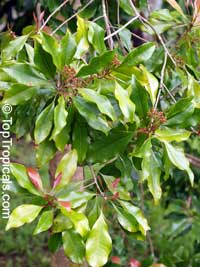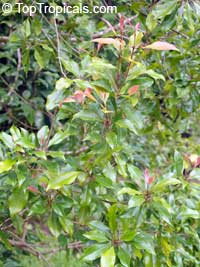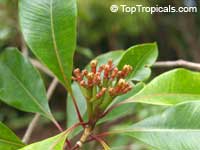(Caryophyllus aromaticus)





flower buds


Dried flower buds
Part used: Fruit.
Properties: Antiseptic, aromatic, carminative, stimulant, anodyne, antiemetic.
What it affects: mouth, stomach, intestines, circulation and lungs.
Preparation and amount:
Infusion: steep 5-15 min. take 1-2 tbsp. 3x a day.
Fluid extract: take 8-30 drops 3x a day.
oil: take 1-2 drops 3x a day.
powder: take 1-5 #0 capsules (2-10 grains) 3x a day.
Purposes:
Internally, a few drops of the oil in warm water will stop nausea and vomiting. Cloves have antiseptic and antiparasitic properties, and also aid digestion. It stimulates and warms the system, helping those with cold extremities. If you have a bitter herb formula, add cloves to cover the taste and improve digestion and circulation. It promotes sweating in colds, flus and fevers and can be used to treat whooping cough. As a carminative. It is good for expelling gas and stopping intestinal spasms.
Externally, Apply clove oil directly to a toothache, to stop the pain.
Warning: Clove oil is very strong and can cause irritation if used in its pure form. Dilute the oil in olive oil or distilled water. Do not take the undiluted oil internally.
No comments:
Post a Comment